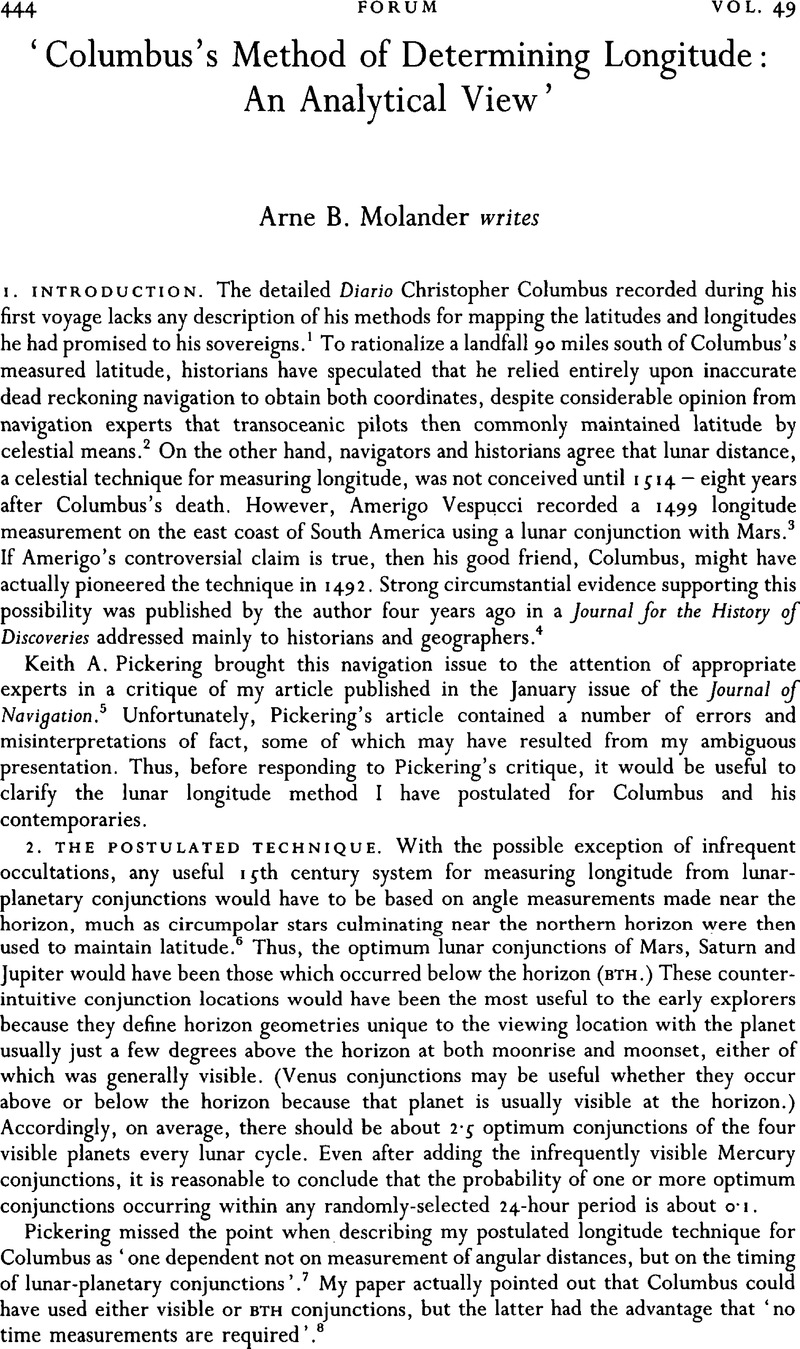Crossref Citations
This article has been cited by the following publications. This list is generated based on data provided by Crossref.
MOLANDER, ARNE B.
1999.
Author's Reply to Comments on “The Celestial Navigation of Christopher Columbus”.
Navigation,
Vol. 46,
Issue. 3,
p.
231.
Gaspar, Romeu
2024.
San Martín's accurate longitude measurements on Magellan's circumnavigation: luck or mastery?.
Journal of Navigation,
Vol. 77,
Issue. 1,
p.
124.


